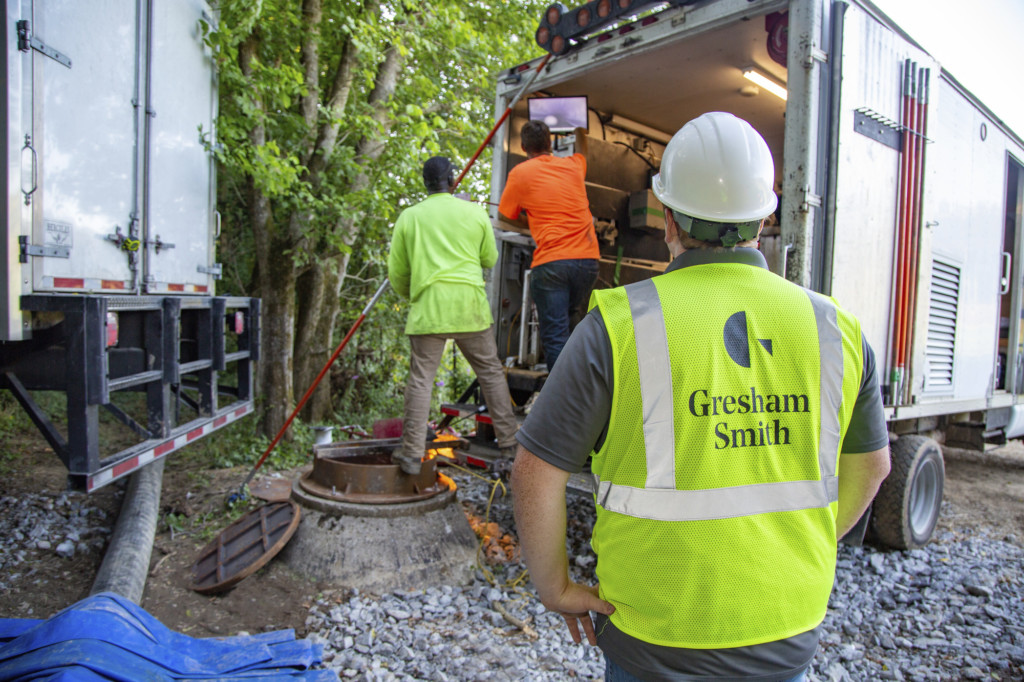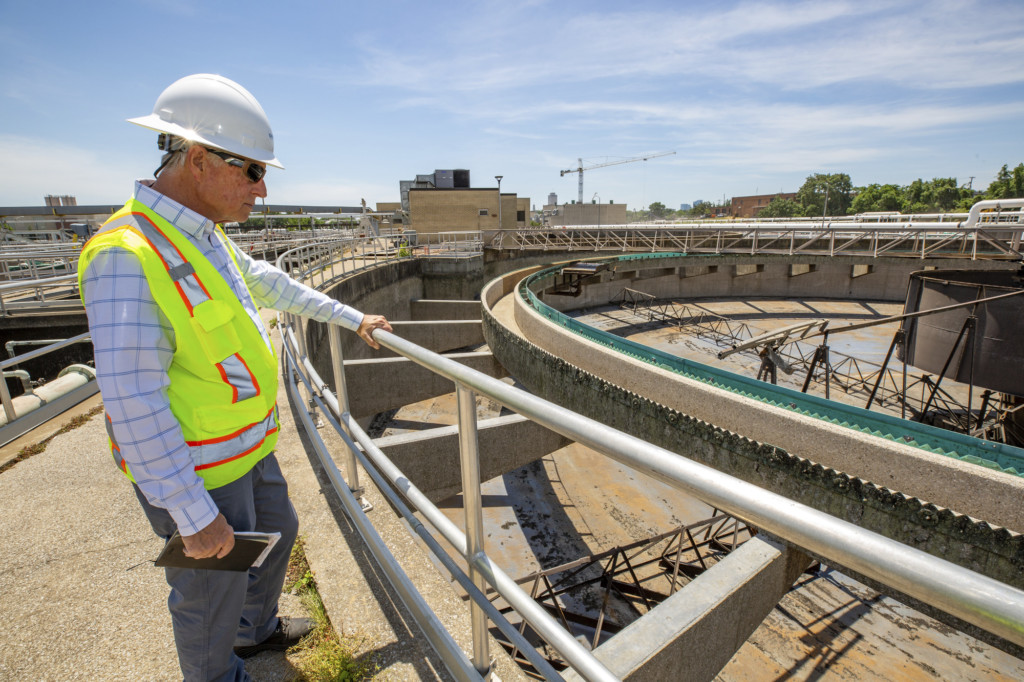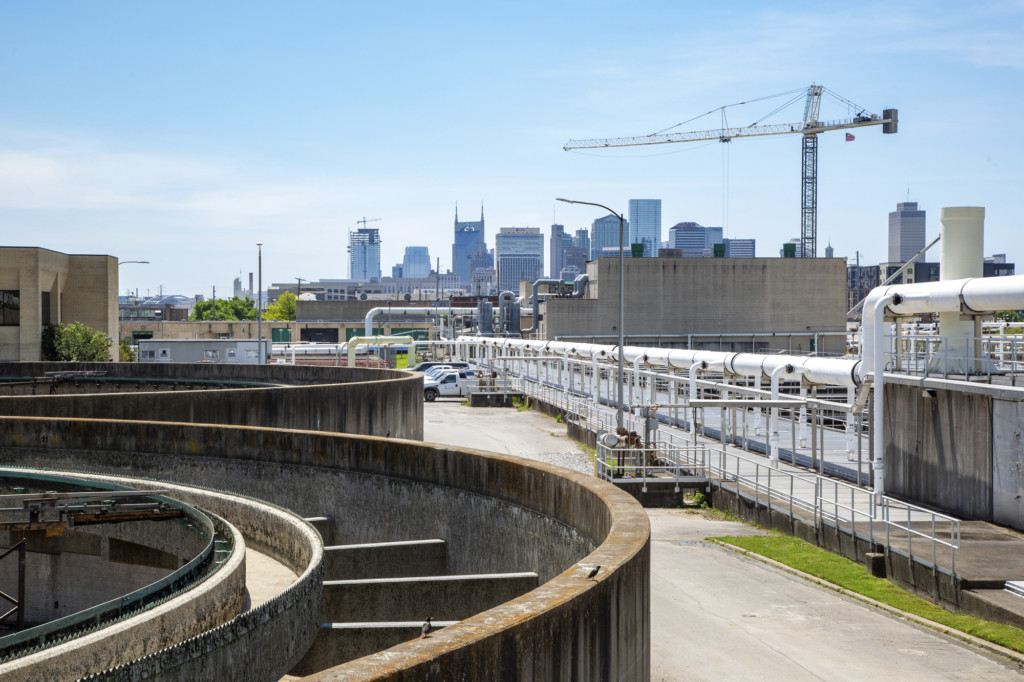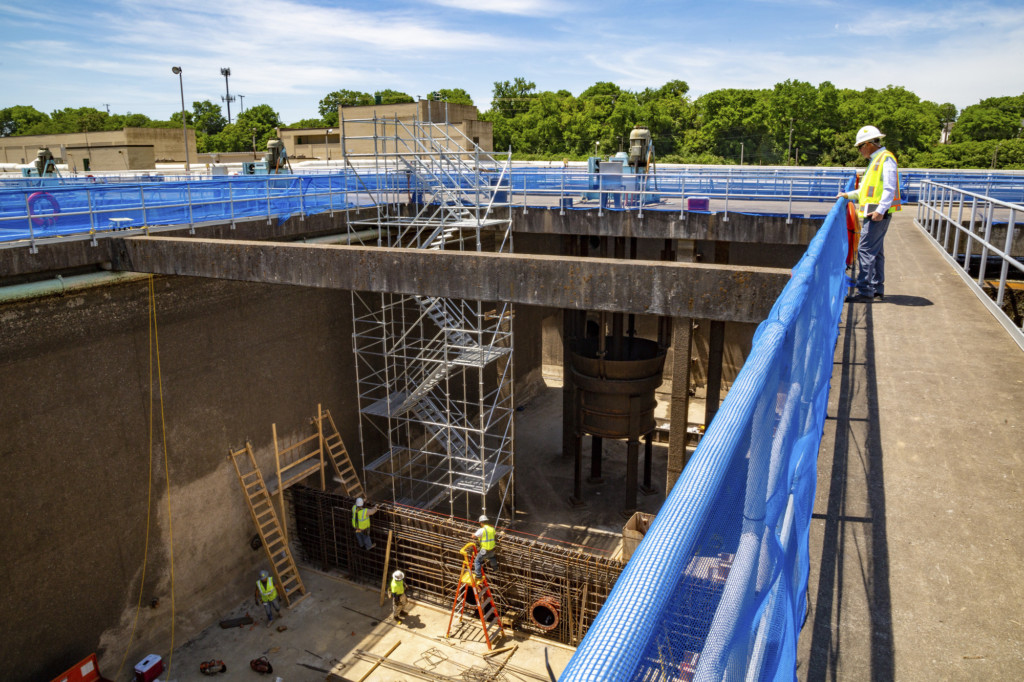In 2011, Gresham Smith began working with Metro Water Services on a $1.5 billion program to optimize Nashville’s public sewer system, increase capacity and improve water quality. Known as the “Clean Water Nashville” program, the investment is widely considered the most significant public infrastructure work in Music City.
Throughout the past decade, our firm has played a unique role in the program, serving as construction managers instead of in a traditional engineer role. This means that instead of designing the improvements, we are overseeing their installation. For a program that will touch the lives of virtually every Nashville resident and many visitors, it’s imperative the Clean Water Nashville program accomplishes its goals.
Construction managers have a tall order to fill. Roles change depending upon the day, the activities of the contractor, the needs of the owner and more. This is why they are often compared to a ‘Swiss Army Knife.’

More Than Just Warm Bodies
For a significant number of capital improvement projects, construction managers serve in a staff augmentation role for the owner, bringing additional resources and experiences. Frequently, they are tasked with being the project manager, taking on additional responsibility and stopping headaches before they reach the owner’s inbox. Public relations and customer service are also vital to keeping a project on track. Every project has some sort of involvement with the public, whether that is by participating in local events, holding meetings with the public or just some one on one with a concerned resident.
Project managers are responsible for bringing all teams to the finish line – including the engineers, contractor, owners, and facility managers – and for making sure all those involved collaborate. This involves recordkeeping, leading meetings, getting everyone on the same page and problem solving when needed.
As construction managers, we take project management a step further. We know that while solutions always look good on paper, they may not be so easily implemented in the field. Our influence helps to steer the ship through all the gray areas, and around obstacles that were not considered during design. We have to be adaptable, as construction solutions may need buy-in from multiple entities, necessitating mediators and excellent communicators. Our input is highly regarded by the owner and facility staff, making it essential to be flexible and build good relationships.
Construction Management vs. Construction Inspection
Construction managers and construction inspectors play very different roles in bringing capital improvement projects to completion, but both are highly valuable. Construction inspectors take notes and make certain that all plans and specs have been followed, the improvements are meeting code and the right material has been used. They do not have the same level of authority when it comes to changing design or influencing the owner.
As construction managers, we receive owner requests that must be taken into great consideration because of their impact on the project. Whether it be delaying the construction timeline, impacting the lead time on a certain material (which will cause further disruptions), or bringing in the engineer to solve an unforeseen problem.
Construction Management in Music City
The Clean Water Nashville program includes system improvements to wastewater pumping, conveyance, storage and rehabilitation projects. Once it is complete in 2032, more than 3,300 manholes and 115 miles of piping will have been rehabilitated. Using proven project controls, cost-tracking systems and a change management program, Gresham Smith’s scope of services includes constructability reviews of project designs, daily direct observation and documentation of construction, consistent reporting and progress tracking, field engineering, advising the owner and construction quality assurance and control.
As construction managers, we have had to “think on the fly” numerous times to make certain the project reaches completion. Shutdowns of the wastewater process may seem easy, but a substantial amount of planning goes into each intentional outage, and understanding the purpose of existing equipment is critical when planning for modifications. For example, we were using a gate that was originally designed decades ago to split flow between basins to isolate a channel. This function is an atypical use for the gate, and was not noted on the as-builts. The existing slide gate was used for full depth channel isolation during an outage. Once the flow had dropped approximately 1 VF, the gate failed and was ripped off of the wall, resulting in a tidal wave of sewage. Once everyone was accounted for, a new gate was fabricated on-site with materials on hand in a matter of hours, allowing the shutdown to continue into the night and the next day. No one was injured, and due to everyone’s quick thinking, delay claims were avoided and only a steel plate and some gaskets needed to be replaced.
When planning electrical shutdowns, it is critical that the contractor sizes and places the generators in a fashion that will allow them to power the essential mechanical components within the plant. When planning for the electrical loading that will continue to be used while the equipment is running, it is vital to incorporate the load that is required to start the equipment. An overnight power outage was scheduled, and the load needed to start the equipment was not accounted for, which left us with two options – to back up and regroup or to take advantage of the equipment that was unable to turn on and make repairs to the electrical feeds during the same shutdown. Knowing the upcoming schedule for mechanical shutdowns and being able to work with the contractor, we were able to turn a mistake into a win by completing the mechanical work during the power outage, which avoided a future power outage.
Creating Better Engineers
Through the Clean Water Nashville program, and the other construction management projects that our firm is currently working on, we’re becoming better engineers, designers and leaders for the next generation. Being out in the field has allowed us to learn from our industry peers, witness solutions to site specific constraints and much more. With more field experience, we can witness new ways of doing things, learn to think quickly on our feet, and more. In the end, construction managers become a sharpened version of the metaphorical ‘Swiss army knife.’


